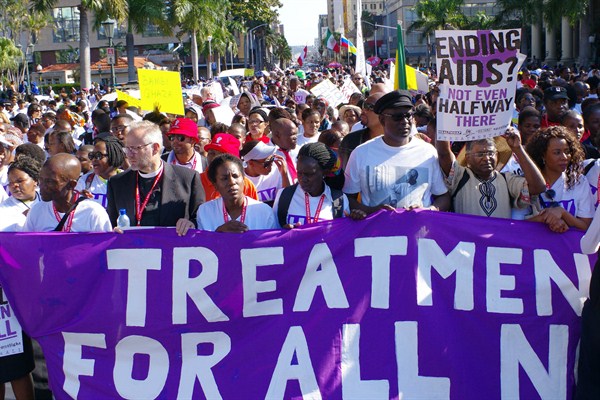The President’s Emergency Plan for AIDS Relief, or PEPFAR, is sometimes described as George W. Bush’s signature policy achievement—a rare bright spot on a decidedly fraught record, especially overseas. Active in more than 50 countries, many of them in sub-Saharan Africa, the program has been essential in the effort to bring the continent’s HIV/AIDS epidemic under control.
Yet the program’s future seemed to be in jeopardy following Donald Trump’s election last November. In January, a list of questions formulated by his transition team sparked concern among those working on foreign assistance in sub-Saharan Africa—and HIV/AIDS programming in particular. “Is PEPFAR worth the massive investment when there are so many security concerns in Africa?” the questionnaire read. “Is PEPFAR becoming a massive, international entitlement program?”
To experts familiar with the program, the questions seemed strikingly wrong-headed, especially in light of what PEPFAR has achieved. As of last year, the program was supporting antiretroviral treatment, or ART, for 11.5 million people globally; when PEPFAR began, only 50,000 people in all of sub-Saharan Africa were receiving ART. And it has helped guide several African countries that were previously ravaged by HIV/AIDS to the point of “epidemic control,” defined as when the total number of new infections drops below the total number of deaths

